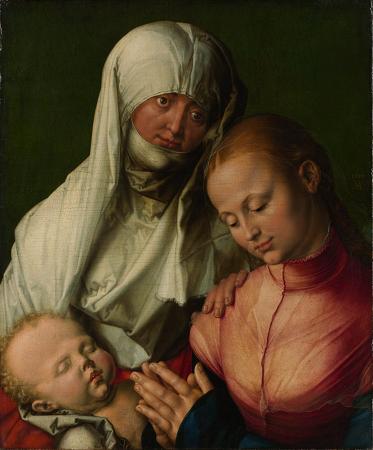Saint. A saint is a person who is recognized as having an exceptional degree of holiness or likeness or closeness to God. However, the use of the term saint depends on the context and denomination. In Roman Catholic, Eastern Orthodox, Anglican, Oriental Orthodox, and Lutheran doctrine, all of their faithful deceased in Heaven are considered to be saints, but some are considered worthy of greater honor or emulation; official ecclesiastical recognition, and consequently veneration, is given to some saints through the process of canonization in the Catholic Church or glorification in the Eastern Orthodox Church. Depending on the religion, saints are recognized either by official ecclesiastical declaration, as in the Catholic faith, or by popular acclamation. The English word saint comes from the Latin sanctus. The word sanctus was originally a technical one in ancient Roman religion, but due to its globalized use in Christianity the modern word saint in English and its equivalent in Romance languages is now also used as a translation of comparable terms for persons worthy of veneration for their holiness or sanctity in other religions. Many religions also use similar concepts to venerate persons worthy of some honor. Author John A. Coleman S.J. of the Graduate Theological Union, Berkeley, California wrote that saints across various cultures and religions have the following family resemblances: exemplary model. extraordinary teacher. wonder worker or source of benevolent power. intercessor. a life often refusing material attachments or comforts. possession of a special and revelatory relation to the holy. The anthropologist Lawrence Babb in an article about Sathya Sai Baba asks the question Who is a saint?, and responds by saying that in the symbolic infrastructure of some religions, there is the image of a certain extraordinary spiritual king's miraculous powers, to whom frequently a certain moral presence is attributed. These saintly figures, he asserts, are the focal points of spiritual force-fields. They exert powerful attractive influence on followers but touch the inner lives of others in transforming ways as well. Further information: List of Catholic saints and General Roman Calendar According to the Catholic Church, a saint is anyone in Heaven, whether recognized on Earth or not, who form the great cloud of witnesses. These may include our own mothers, grandmothers or other loved ones who may have not always lived perfect lives butamid their faults and failings they kept moving forward and proved pleasing to the Lord. The title Saint denotes a person who has been formally canonized, that is, officially and authoritatively declared a saint, by the Church as holder of the Keys of the Kingdom of Heaven, and is therefore believed to be in Heaven by the grace of God. There are many persons that the Church believes to be in Heaven who have not been formally canonized and who are otherwise titled saints because of the fame of their holiness. Sometimes the word saint also denotes living Christians. In his book Saint of the Day, editor Leonard Foley, OFM says this: the surrender to God's love was so generous an approach to the total surrender of Jesus that the Church recognizes them as heroes and heroines worthy to be held up for our inspiration. They remind us that the Church is holy, can never stop being holy and is called to show the holiness of God by living the life of Christ. The Catholic Church teaches that it does notmake or create saints, but rather recognizes them. Proofs of heroicity required in the process of beatification will serve to illustrate in detail the general principles exposed above upon proof of their holiness or likeness to God. According to the Catechism of the Catholic Church Chapter 2, Article 1, 61, The patriarchs, prophets, and certain other Old Testament figures have been and always will be honored as saints in all the church's liturgical traditions.
more...














